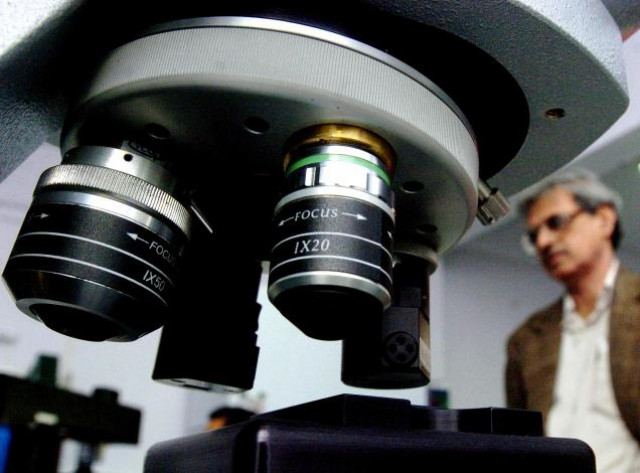New technologies: Nanotechnology is the way to go, claim experts
The nanoscale is a place where science and technology gain an entirely new meaning.

A whole lot of issues in our everyday lives are meaningful only because of conventional measuring scales. But, at present, we cannot really think about basic concepts like width, breadth, depth and height or even bigger problems like poverty and global warming on a scale which is 1,000 times smaller than a fly’s eye - they all lose meaning on the nanoscale. Yet the nanoscale - a world where decisions are based on atoms, molecules, proteins, and cells - is a place where science and technology gain an entirely new meaning.
A seminar aimed at creating awareness about this relatively new field of study and experimentation was held at the Jinnah University for Women. Dr Abdul Qadeer from the Federal Urdu University of Arts, Science and Technology and Dr Ahmad Shahzad Khan from the DeVry University, Illinois, US, expounded the meanings and applications of nanotechnology.
While talking at the event on Wednesday, Dr Qadeer said that most of nanotechnology’s benefits would appear decades later, but it is already helping to improve our world in many different ways. He added that nanotechnology was perceived as something new and alien but life itself was an example of nanotechnology. “All different scientific disciplines have their own paradigm,” he said. “This is why innovations, industrial developments and new technologies have changed our thinking patterns.”
Speaking about the prospects and implications of the technology, Dr Qadeer said that one of the most exciting areas of nanotechnology was the possibility of building incredibly small machines referred to as nanomachines like gears, switches, pumps, or engines made from individual atoms. “In the future, there is a possibility to make nanorobots,” he said. “These can be injected into our bodies to carry out repairs.”
Dr Qadeer said that like advancement in electronics had resulted in transformation of the world of communication - nanotechnology will change the whole through ‘autopoiesis’, the power of self-replication in nanomachines.
Dr Khan said that it was important to do away with Lord Macaulay’s colonial educational system. “We are not moving forward because we are still following it,” he said. “This system is based on memorisation and discourages students from analytical and critical thinking.”
He said that industrial revolution took 200 years to remake the world while electronic revolution took 70 years. The information technology revolution changed the world in a decade - nanotechnology hardly took five years. “It is time to remake the world and right now we need to educate ourselves about implications of nanotechnology.”
According to Dr Khan, nanotechnology sounded like a world of great promise, but there are controversial issues too that must be considered and resolved. “Some people have raised concerns that nanoscale organisms or machines could harm human beings or the environment,” he said.
“And that is true. One of the problems is that the tiny particles can be extremely toxic for humans and nobody really knows what harmful effect new nanomaterials or substances could have.”
Published in The Express Tribune, December 15th, 2011.


















COMMENTS
Comments are moderated and generally will be posted if they are on-topic and not abusive.
For more information, please see our Comments FAQ